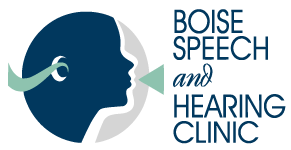As parents, we eagerly await every new milestone and developmental stage our children go through – from rolling over to taking their first steps. One of the most highly anticipated is hearing those first words come out of their little mouths. Seeing your child begin to communicate and express themselves through speech is such an exciting time! However, every child develops speech and language skills at their own pace. If your child isn’t speaking much yet, it doesn’t necessarily mean there is a problem, but it’s good to be aware of the typical milestones.
Speech vs. Language Delays
It’s important to understand the difference between speech and language delays. Speech refers to the verbal expression and articulation of words and sounds. A speech delay means a child is having difficulty physically forming the words with their mouth muscles and being understood by others. Language refers to understanding and expressing communication, both verbal and nonverbal. A language delay means a child is struggling with putting words together to communicate ideas and comprehending what is being said to them.
- Signs of a Potential Delay
Every child is different and will reach milestones at their own pace, but here are some potential signs of a speech or language delay to watch for: - By 12 months, not responding to sounds or vocalizing at all
- By 18 months, preferring gestures over vocalization to communicate needs
- By 18 months, inability to imitate sounds
- By 2 years, only imitating words/actions but not spontaneously producing them
- By 2 years, limited to repeating just a few words/sounds to get needs met
- By 2 years, inability to follow simple one-step directions
- By 2 years, unusual vocal quality like a raspy or nasal voice
- By 4 years, speech is very difficult for unfamiliar people to understand
Causes and Getting Help
There are many potential causes of speech and language delays like hearing problems, oral-motor issues affecting the mouth muscles, developmental disorders like autism, and cognitive delays. Ear infections, especially chronic ones in the first few years, can also negatively impact speech development. The best thing to do if you have any concerns is to have your child evaluated by a licensed speech-language pathologist (SLP) right away. They can do standardized testing to determine if a delay exists, get to the root of the issue, and provide personalized therapy if needed.
At the Boise Speech and Hearing Clinic, our caring and expert staff of speech therapists can work closely with your child through fun, engaging activities to improve their speech and language skills. We’ll also provide you with specific techniques to practice at home. With early intervention and therapy, many children are able to catch up to peers in their communication abilities.
If you have ANY worries about your child’s speech and language development, don’t wait! Call us today at (209) 793-7006 or visit boiseshc.com to schedule a FREE consultation. Early intervention is key to helping your child become a happy, confident communicator!


